Speakers Bureau
The Faculty Advisory Group of the Clement and Linda McGillicuddy Humanities Center represents 16 departments and units at UMaine with expertise in the humanities and the humanistically oriented social sciences. In order to make our work better known to the general public, advisory group members welcome media inquiries on topics relevant to their expertise, and are excited to share their work in public lectures with organizations throughout the State of Maine without a fee.
To the extent that your organization has the capacity to make a donation to the Endowment Fund of the MHC, we request that you consider a small tax-free donation ($100-$1,000) to support the Speakers Bureau and other McGillicuddy Humanities Center activities, which backs excellent teaching, research and public engagement in the humanities to deepen understanding of the human condition.
For questions about this program, or to inquire about other possible speakers and lecture topics, please contact Center Director Zach Ludington at zachary.r.ludington@maine.edu or MHC Humanities Specialist Alex Young at alexander.young1@maine.edu.
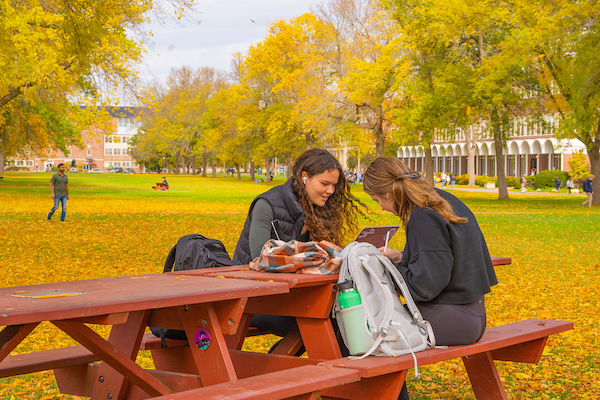
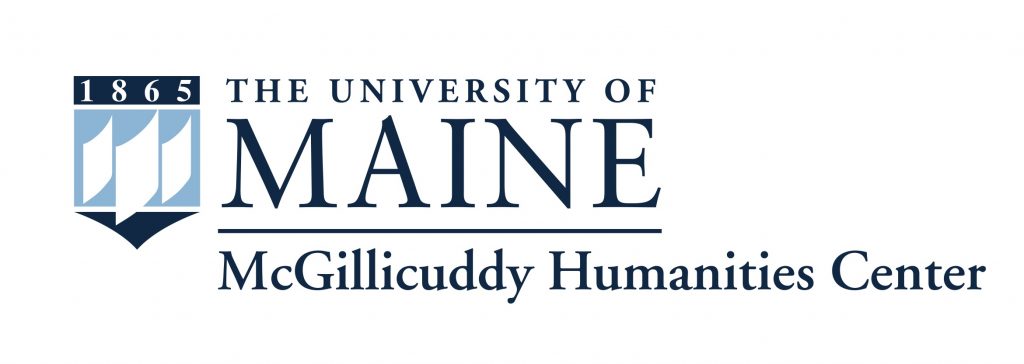
Speakers, Topics, and Areas of Expertise
Hollie Adams

Hollie Adams (Department of English) is an assistant professor of English, who teaches primarily in the fields of creative writing and Canadian literature. She is the author of the novel Things You’ve Inherited from Your Mother (2015) and the poetry chapbook Deliver Me From Swedish Furniture (2017), which was shortlisted for the bpNichol Chapbook Award, recognizing excellence in Canadian poetry. Adams is available to speak about creative writing, Canadian literature, and narratology.
Michael Grillo

Michael Grillo (Art History) writes on how Italian fourteenth-century images operate as primary sources that visually articulate ideas inexpressible in any other media, including the verbal realm. He directs both the interdisciplinary Medieval and Renaissance Studies minor and the Film and Video minor.
- The Rise of Modernity in the Age of Dante
- A Millenium of Public Discourse: The Role of Universities in Participatory Government
- Visual Thinking in the Baroque Era
- Seventeenth-Century Netherlands Genre Painting and the Birth of Modern Consumer Society
Sarah Harlan-Haughey

Sarah Harlan-Haughey (Department of English) is a medievalist with an interest in literature and the environment; she writes about outlaws, landscape, and memory. Harlan-Haughey received her PhD in Medieval Studies from Cornell University. Dr. Harlan-Haughey is available to speak on Medieval/Middle English/Old English literature, sagas, Robin Hood, King Arthur, Dragons, Knights, the “postmedieval” (including Tolkien, Wagner, and modern fantasy), the environmental humanities, and folklore/oral traditions.
Gregory Howard
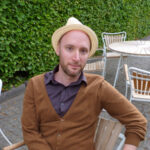
Gregory Howard (Department of English) teaches creative writing, contemporary literature, and film studies at the University of Maine. His first novel Hospice was published by FC2 in June 2015. His fiction and essays have appeared in Web Conjunctions, Harp & Altar, and Tarpaulin Sky, among other journals. Howard has expertise in contemporary American literature, literature in translation, postmodernism, Samuel Beckett, and creative writing.
Kirsten Jacobson
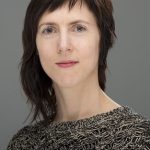
Kirsten Jacobson (Department of Philosophy) specializes in 19th and 20th Century Continental Philosophy. Her research interests include the study of spatiality and the interpersonal significance of space, the nature of home and dwelling, and, more generally, the philosophical significance and status of the phenomenological method. She teaches courses in Continental Philosophy and the Philosophy of Art.
- Adventures in Philosophy and Sailing (or, Hands-On Learning as Central to a Liberal Arts Education)
- Waiting to Speak: A Phenomenological Perspective on our Silence around Dying
- Careful Exposure: The Essential Role of Play in Psychological and Political Health
- The Living Arena of Medical Ethics: Space, Autonomy, and Embodiment
Brian Jansen
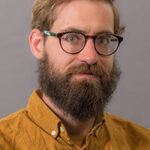
Brian Jansen (Department of English, Department of Communication and Journalism) is the Humanities Specialist for the MHC and serves as part-time lecturer in the Departments of English and Communication and Journalism. Jansen’s scholarly interests focus broadly on contemporary American literatures and cultures; he is available to speak on contemporary American literature (especially the work of George Saunders and David Foster Wallace), literature and labor, children’s/young adult literature, and the culture and politics of professional wrestling.
Michael Lang

Michael Lang (Department of History) is a historian of modern Europe with emphasis in intellectual history, international relations, and the connections between the two. Lang teaches the European history survey as well as advanced and graduate courses in international affairs, globalization, the history of theory, and methodology.
- What is Globalization? When did it start?
- What is History?
Liam Riordan
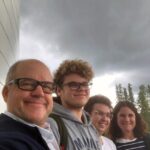
Liam Riordan (Department of History, former MHC Director) is an early American historian specializing in the Revolutionary era (c. 1760-1830), and has been a faculty member at UMaine since 1997. His research draws on interdisciplinary cultural studies and social history methods.
- The Five Most Important Things to Know about the American Revolution
- The American Revolution and the Origins of Multiculturalism in the United States
- Does the American Revolution Look Different from the Penobscot River?
- What are the Humanities, and Why are They Essential for our Future? (a facilitated discussion based on watching “The Heart of the Matter” video)
- Maine@200: Past & Present in the Bicentennial of Statehood, 2019-2021
Frédéric Rondeau
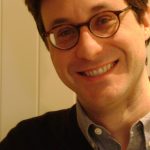
Frédéric Rondeau (French, Modern Languages and Classics, Director of the Canadian-American Center) works on 20th century Quebec citerature and culture; the counter-culture; post-68 literature, culture, and politics (France-Quebec); Francophone literature of North America; Quebecois poetry and literary journals; literary avant-gardes; and contemporary French philosophy (including Rancière, Gilles Deleuze, and Roland Barthes).
- Counterculture: How US hippies changed Quebec culture
- Artistic and Political Protest in Quebec: From the Quiet Revolution to the Maple Spring
- The University in Ruins: Why Bill Reading is Still Relevant
- Literature and Politics. The Imaginary Territory of Quebec
Judith Rosenbaum
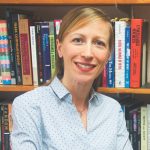
Judith E. Rosenbaum (Department of Communication and Journalism) is an Associate Professor of Media Studies. Her research is focused on understanding how people actively use media content in their daily lives and how this usage affects both individuals as well as society at large. Dr. Rosenbaum comes from a social scientific background and her research relies on a mixture of quantitative and qualitative research methodologies; she welcomes the invitation to speak on the topics of social media, internet culture, misinformation and fake news, and entertainment media.
Michael Socolow

Michael Socolow (Communications and Journalism, former MHC Director) is a media historian whose research centers upon America’s original radio networks in the 1920s and 1930s. His scholarship on media history has appeared in Journalism & Mass Communication Quarterly, The Journal of Broadcasting and Electronic Media, Technology & Culture, and other scholarly journals. He is also a former broadcast journalist who has worked as an Assignment Editor for CNN and as an information manager for the host broadcast organizations at the Barcelona, Atlanta, and Sydney Olympic Games.
- Maine Media in Transition
- “The Pine Tree State on the National Airwaves”: Radio in Maine, 1920-1940
Beth Wiemann

Beth Wiemann (School of Performing Arts Division of Music, MHC Director) studied composition and clarinet at Oberlin College and received her PhD in theory and composition from Princeton University. In addition to clarinet instruction, her work at UMaine includes teaching Orchestration, Tonal Counterpoint, Twentieth Century Musical Techniques, Composition, and Graduate -level theory seminars. She is available to speak on composing and 20th-21st century classical music.
Justin Wolff
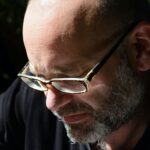
Justin Wolff (Department of Art, former MHC Director) is Professor of Art History and Chair of the Department of Art at the University of Maine. He teaches courses on American, modern, and contemporary art, as well as art theory and criticism. His research focuses on nineteenth- and twentieth-century American art and visual culture. Wolff is available to speak on the history of American art, the history of modern art, and contemporary art.
